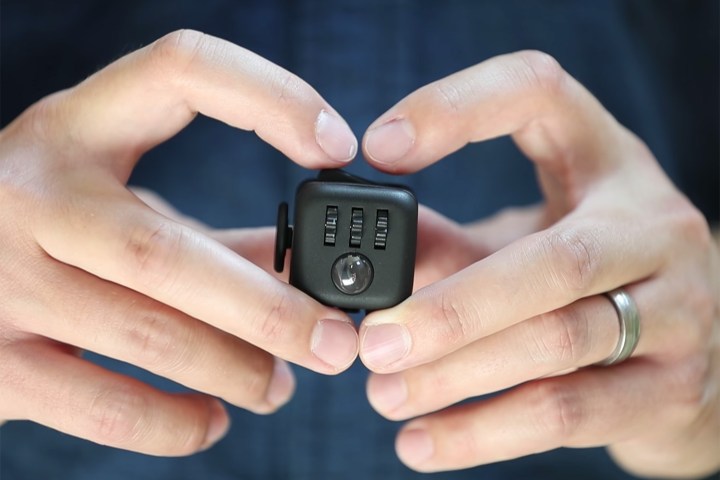
Airbus took the wraps off its futuristic flying car, and it’s pretty insane

If you rolled your eyes when you read about Airbus’s plan for a futuristic flying car last year, then you’ll be surprised at what showed up at the Geneva Motor Show this week. The aerospace giant unveiled a wickedly cool design for its ambitious “Pop.Up” transportation system, an autonomous concept comprising three separate modules.
Google says Android exploits mentioned in the CIA leak have been patched

If you have an Android phone and this week’s revelations about the CIA’s hacking capabilities have you worried, we have some good news. On Thursday, Google told members of the press that many of the exploits and vulnerabilities mentioned in the report have been patched in subsequent versions of Android.
“As we’ve reviewed the documents, we’re confident that security updates and protections in both Chrome and Android already shield users from many of these alleged vulnerabilities,” said Heather Adkins, Google’s director of information security and privacy
Your favorite cartoon classics are about to get their own streaming service

If you’re fan of classic cartoons, or your kids have yet to discover the hilarious delights of the shows that had you chuckling when you were a tot, then you might want to hear about a new online streaming service. Launching in the coming weeks, Time Warner’s new stand-alone video-on-demand service will offer much of the fabulous cartoon work created by Hanna-Barbera, Looney Tunes, and MGM that stretches back decades.
World’s first single-atom magnet is capable of storing a single bit of data

IBM said on Wednesday that it has created the world’s smallest magnet by using a single atom. While you may ask what would be the point, consider that hard drives rely on magnetism to store data on their spinning discs. These drives are capable of using around 100,000 atoms to store a single bit of data. But with IBM’s new magnetic atom, one bit of data can be stored per atom, opening the door to new storage possibilities.
‘The Airbnb Story’: How an air mattress laid the foundation for an empire

The most valuable commodity in Silicon Valley is a new idea. Now a new book by Fortune reporter Leigh Gallagher aims to tell the inside story of one of the Valley’s most remarkable success stories: Airbnb. Digital Trends recently caught up with Gallagher in New York to talk about how she landed the inside scoop in her latest book, The Airbnb Story.
Are smartphones killing the art of face-to-face conversation? We ask the experts

Smartphones are everywhere now, and for many of us they serve as a constant companion. They keep us continually connected, filling gaps in our day, entertaining us, and demanding our attention with a string of notifications. Because they offer a convenient alternative to face-to-face conversations, and at times they butt into our chats directly, there’s a growing realization that they may be killing the art of conversation.
Scientists say study indicates that green light may help relieve pain

Green has long been the color of nature and envy, even if it’s also associated with money and traffic lights int he modern world. Now however, some researchers think there may be another use for it as a potential pain reliever. University of Arizona professor Mohab Ibrahim was first inspired to undertake the study by his brother’s seemingly unusual treatment for his headaches.
Jimmy Kimmel reveals habit of Emma Watson that used to ruin Harry Potter takes

Emma Watson has come a long way since her Harry Potter days. If your memory of Watson as the 9-year-old just beginning her acting career in Harry Potter and the Sorcerer’s Stone is hazy, Jimmy Kimmel was kind enough to offer a reminder. When the actress recently appeared on his show, he screened an outtake from the film that shows an old, bad habit of hers.
Are fidget toys legitimately good for your brain, or pseudoscientific snake oil?

Fidget Cube has inevitably been followed by a number of other crowdfunding campaigns designed to appeal to the twitchy fingers of those who supported it. One was a fidget pen called Think Ink, which combines a titanium pen exterior with a number of tactile elements for distracted fingers to play with. It hit more than quadruple its funding target. But is this really a thing — or is the idea that a distracting toy can actually help us just a pseudoscientific marketing ploy?
Wire you doing this to me? How I hid unsightly tech in my smart apartment

I want my apartment to be smart, but I don’t want it to look stupid. That is, I don’t mind having a digital frame on display, but I don’t want the cord hanging down the wall, calling attention to the fact that it’s a digital frame. To get a few ideas on how to hide some of the tech in my apartment, I asked Mya McDuffie from online interior design site Havenly for help.

